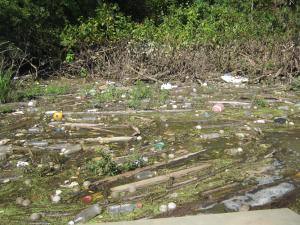
Section Branding
Header Content
High Levels of E.Coli in the Chattahoochee River
Primary Content

State environmental officials say they’ve found high concentrations of E. coli bacteria in the Chattahoochee River near a wastewater treatment plant in Atlanta.
It failed during last week's flooding.
E. coli testing takes a week for results, but officials say fecal coliform, can be detected faster.
They’ve added eight more test sites in Georgia rivers, bringing the total to 10 as other treatment plants downstream also failed, sending sewage into the rivers.
Officials say testing for fecal coliform will continue for at least two weeks or until the levels are back to normal and all wastewater treatment plants are operational.
In the meantime, authorities say people should use proper hygiene when coming in contact with potentially dirty river water.
There's no threat to drinking water, and over time experts say the rivers will heal.
For more coverage on Georgia's historic floods and the effects on the Chattahoochee River, visit NPR's website, where you can hear a special report by GPB's Susanna Capelouto.
Tags: Atlanta, Chattahoochee River, Georgia flooding, Atlanta flooding, Atlanta floods, Georgia floods, fecal coliform, wastewater, E. coli
